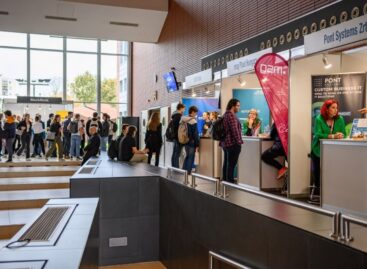Shanghai: admission for low price
– Everybody who regard themselves as global players should be present here. This is one of the reasons why .Metro was the first of the international chains to enter the Chinese market in 1995 – said dr. Hans-Joachim Körber, CEO and president of Metro on the first day of the CIES conference held in Shanghai, in June. Record attendance was registered at the CIES conference with 840 leading executives from 50 countries. Global trends of the food trade were discussed, especially the boom seen in Asia. Dr. Körber used figures from Metro sales to illustrate the dynamism of growth in Asian markets. Their sales showed an increase of 26 per cent in China, 32 in Vietnam, 18 in India and 17 in Japan compared to the preceding year. Metro operates 35 Cash&Carry stores in 29 Chinese cities with the JinJang group. They have 8,500 employees and serve 3 million customers. It is however, impossible to define a single typical “Asian” or “Chinese” consumer, as enormous differences exist between regions and cities. – The line from Frank Sinatra singing about New York does not apply here. Being successful in one place is no guarantee for success anywhere else – he added. Asian development however, means 1 billion new consumers who need to be served. José Luis Duran, president of the number one European retail chain Carrefour, spoke about the changing character of retail trade. – We spend too much time thinking about ourselves. We should be thinking more about consumers and store space, to increase efficiency – he noted. His company opened its 99th hyper market in China on the day of his presentation. They also have 250 discount stores and 45,000 employees, with over 300 million customers. He pointed out that consumers dictate and changes in retail trade should reflect consumer preferences. He mentioned hyper markets as an example of declining popularity. This does not mean the end of hyper markets, but indicates the necessity of revising their basic concept. Regarding the relationship between manufacturers and retailers, he pointed out the fact that innovation cycles are getting shorter and the need for collaboration in serving consumer needs. He also spoke about the analysis of consumer data bases and jointly managed inventories and CPFR (Collaborative Planing, Forecasting, Replenishment) as well. Mike T. Duke, vice president of Wal-Mart Stores, the largest retail company in the world spoke on the third day. He emphasised the role retail trade plays in making society more harmonic, primarily by creating jobs. Mike T. Duke also mentioned investments made by retailers in the supply chain and infrastructure and the sharing of their best practices with manufacturers as contributions to a more harmonic society. A breakthrough was achieved by the Global Food Safety Initiative at the conference. Roland Vaxelaire, chairman of GFSI and a director of Carrefour announced that Ahold, Carrefour, Delhaize, Metro, Migros, Tesco and Wal-Mart have decided to adopt the food safety model recommended by GFSI.
Related news
Related news
The Store of the Future opens again at the SIRHA Budapest exhibition! (Part 1)
🎧 Hallgasd a cikket: Lejátszás Szünet Folytatás Leállítás Nyelv: Auto…
Read more >Gross from 600 thousand to 1.5 million: numbers also reduce the anxiety of career starters
🎧 Hallgasd a cikket: Lejátszás Szünet Folytatás Leállítás Nyelv: Auto…
Read more >




